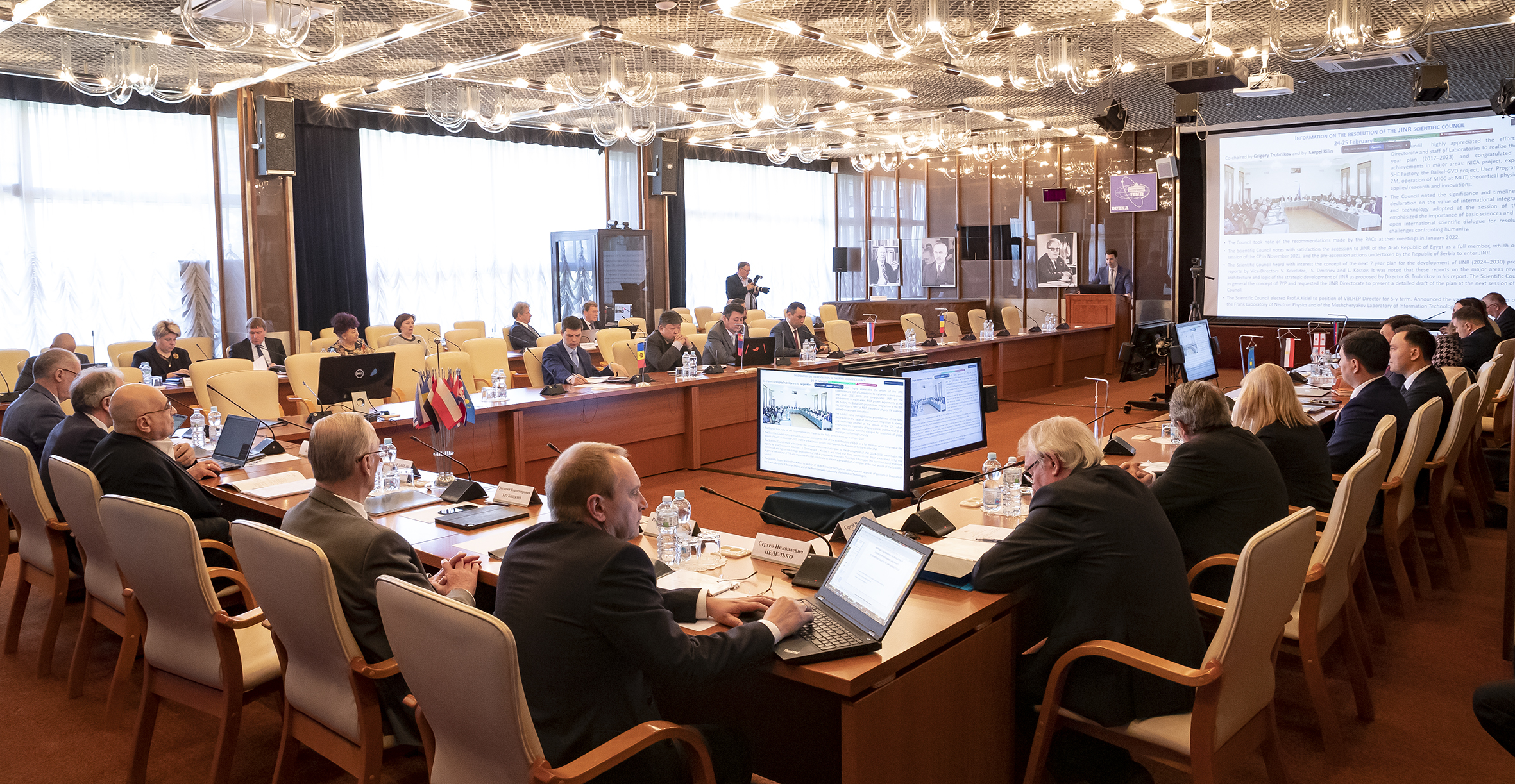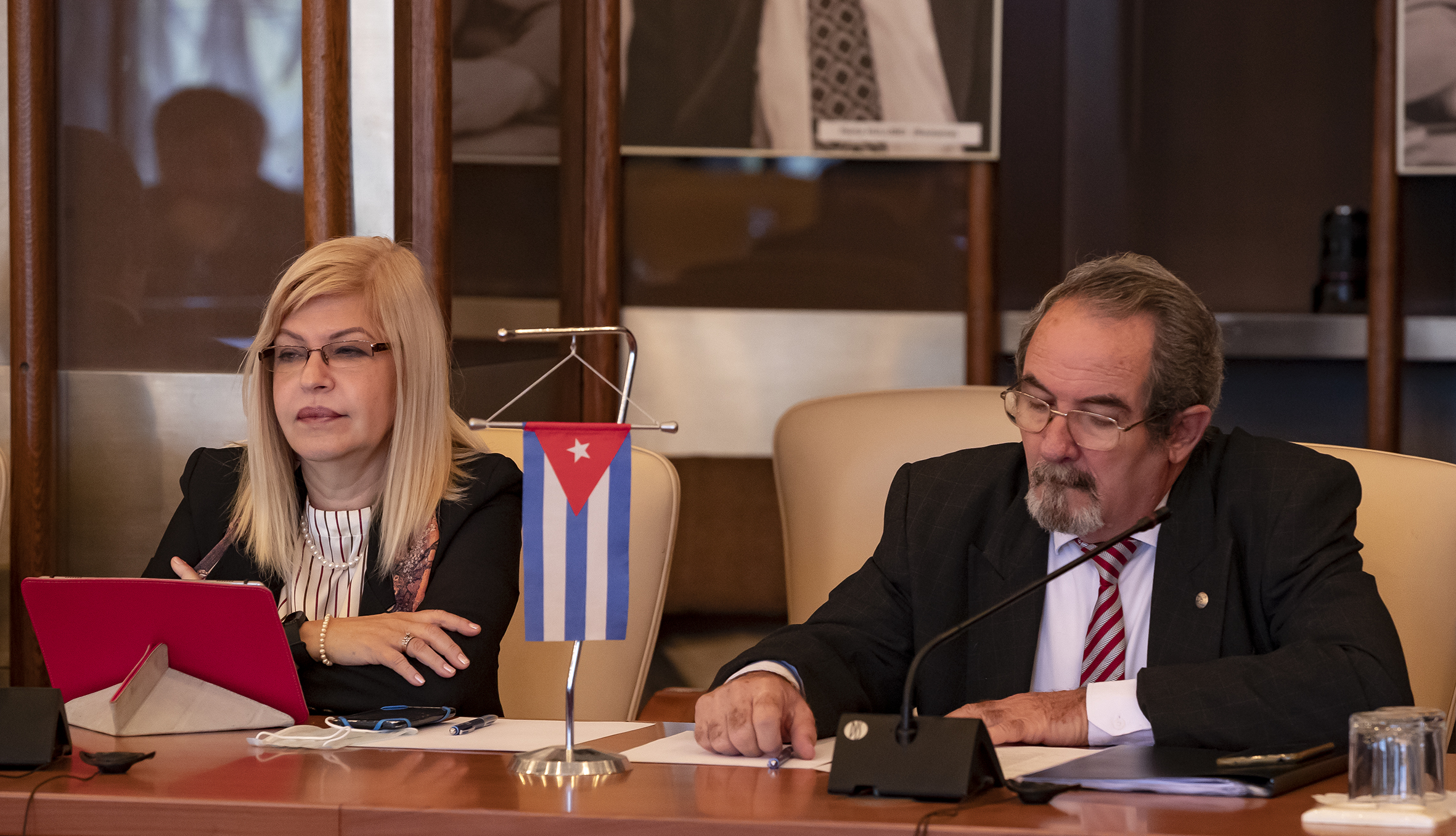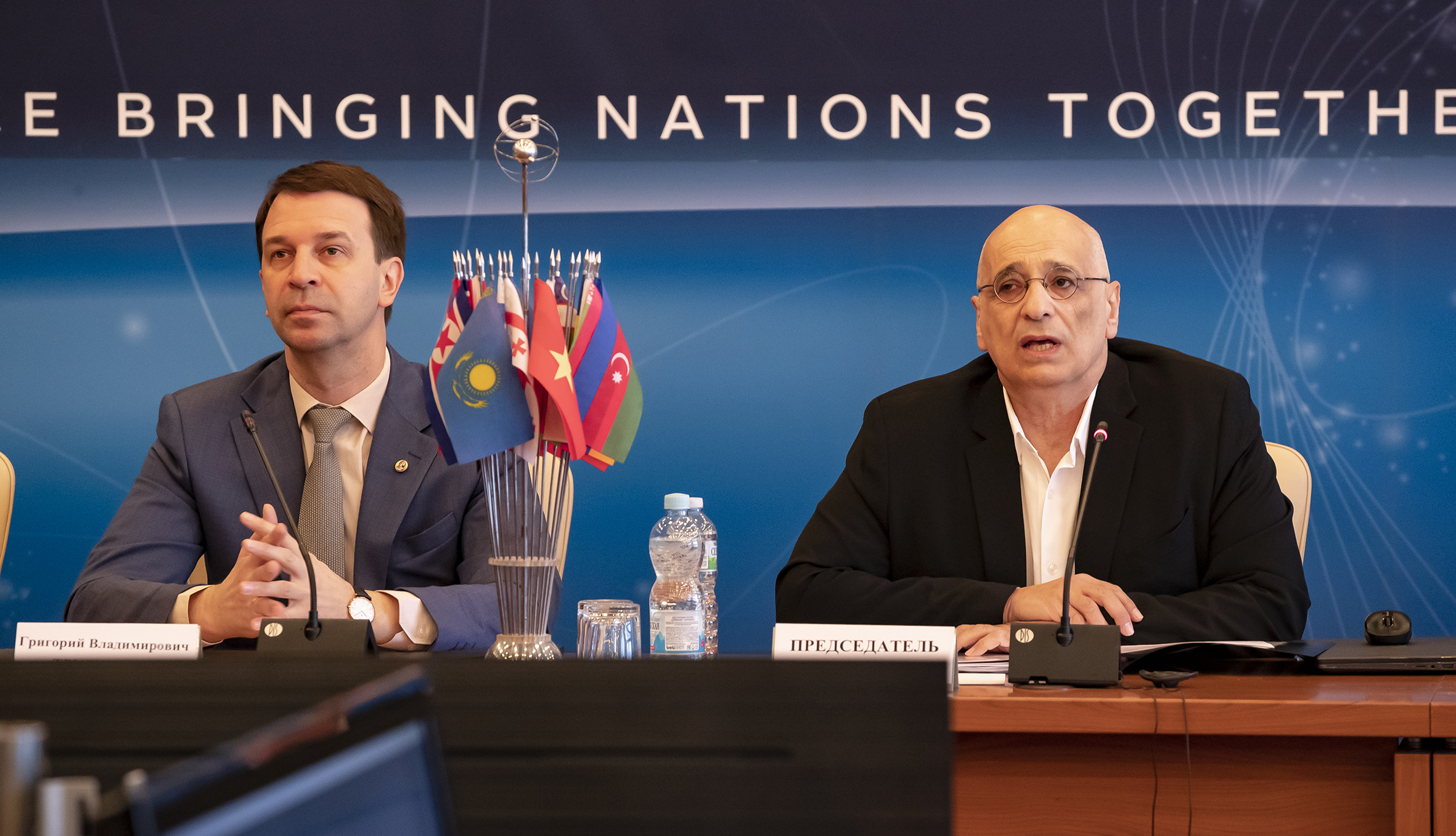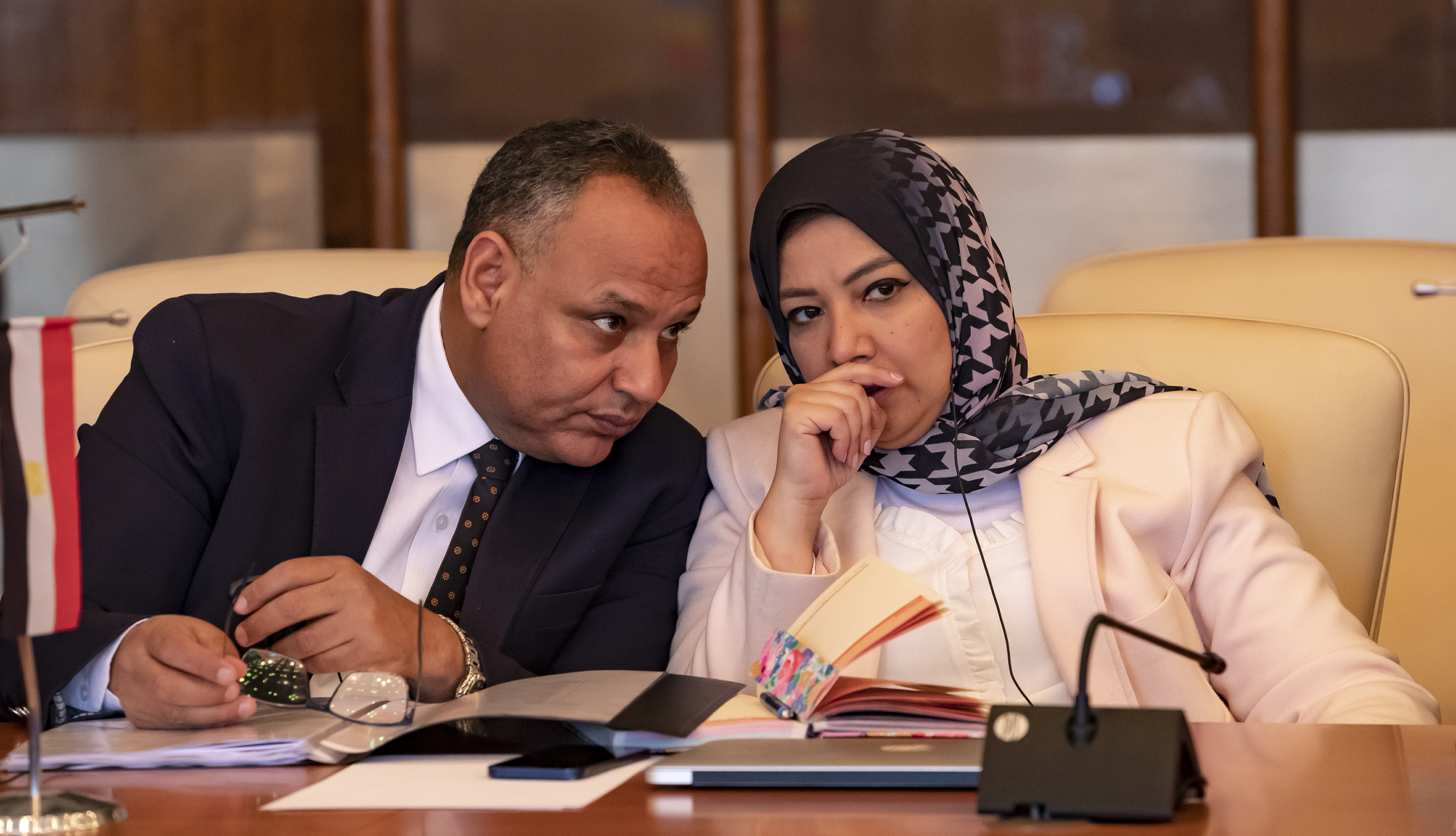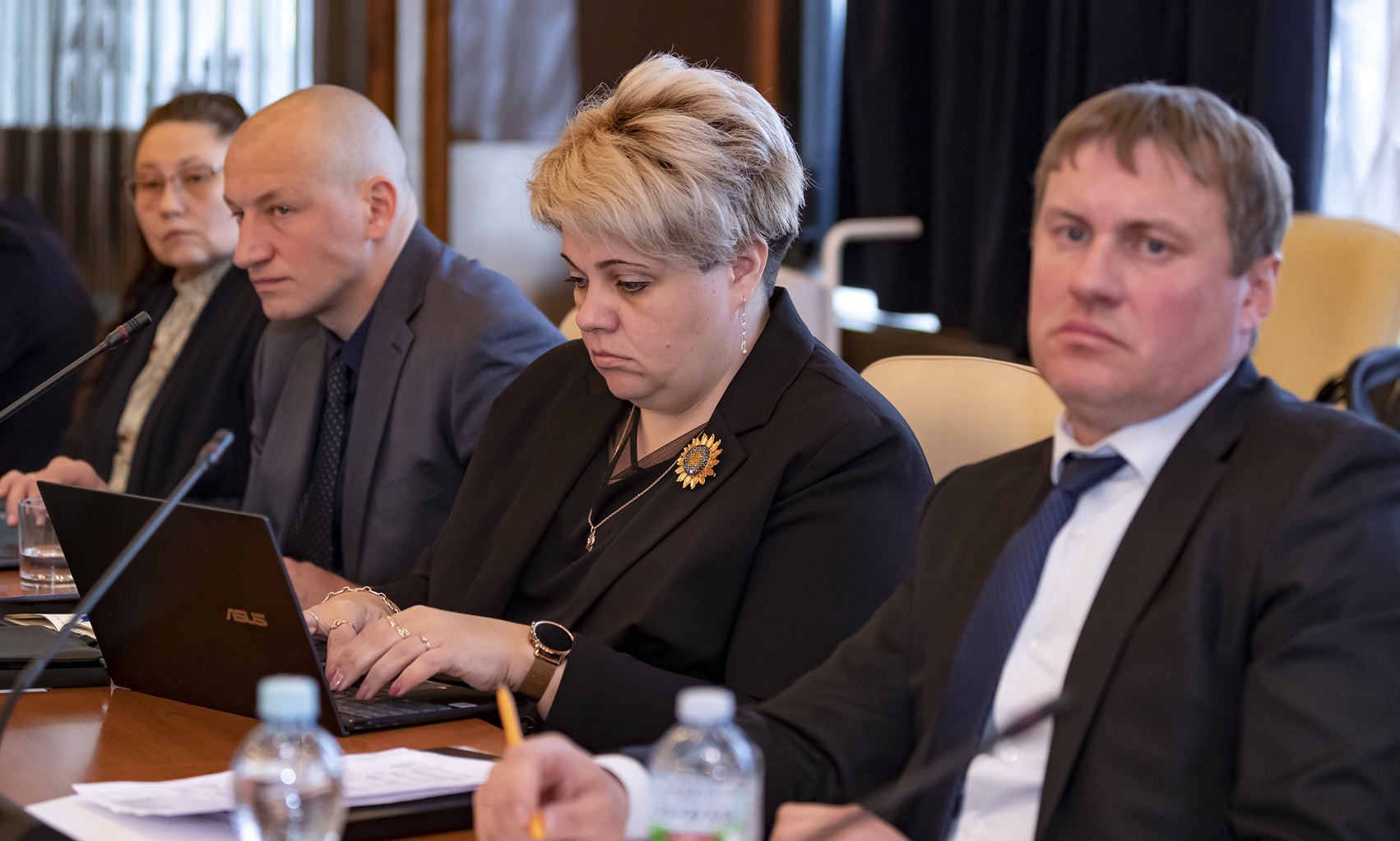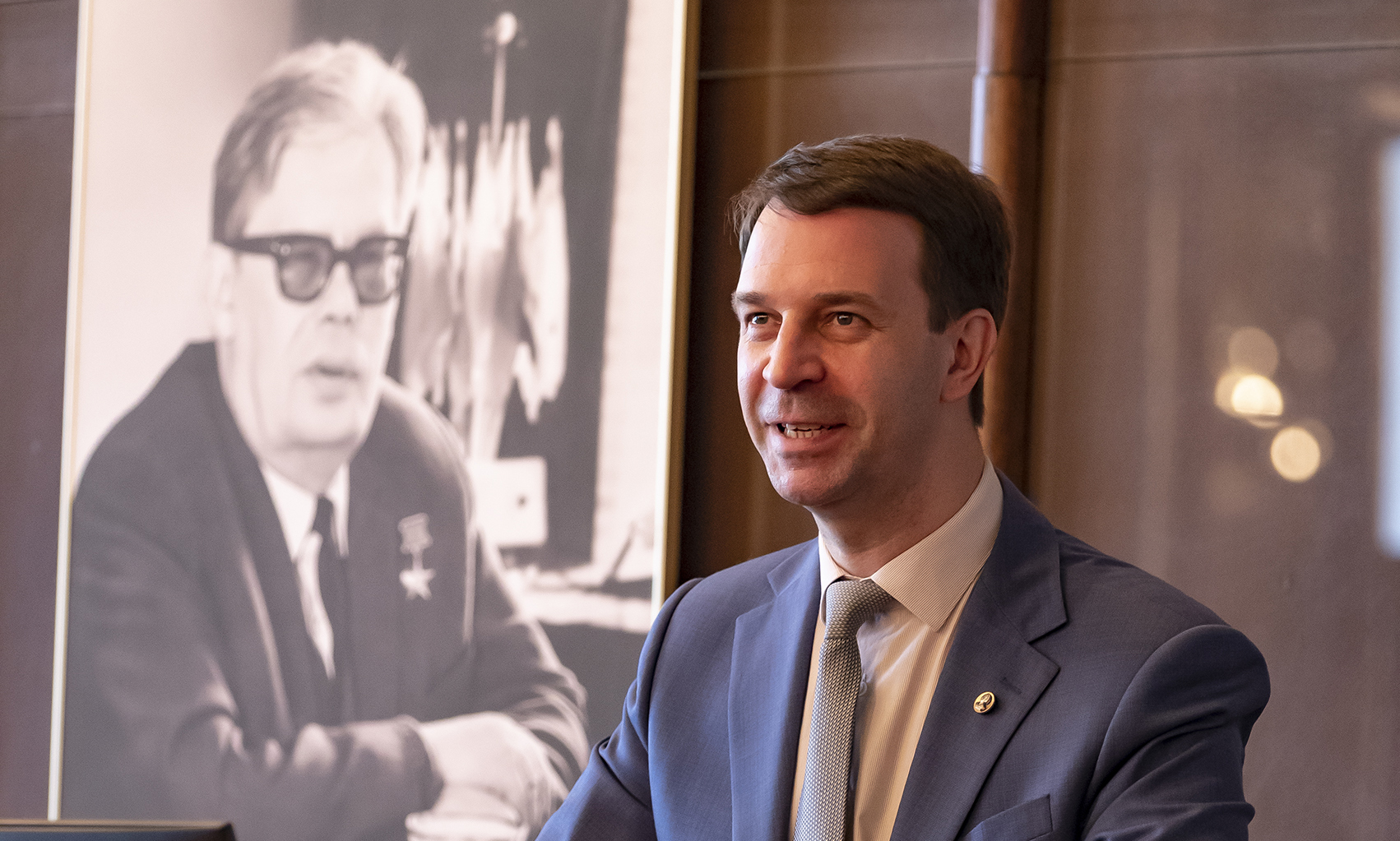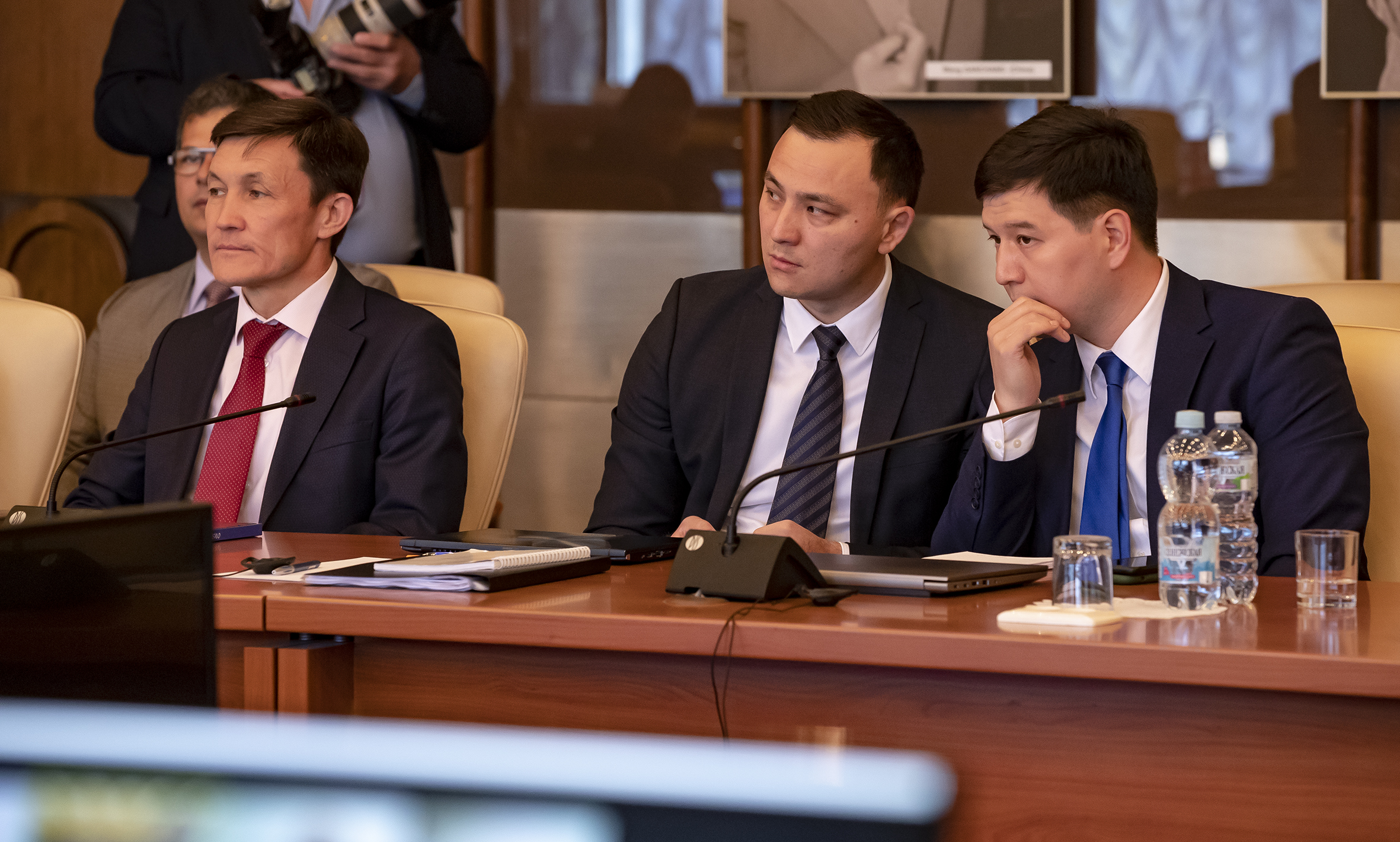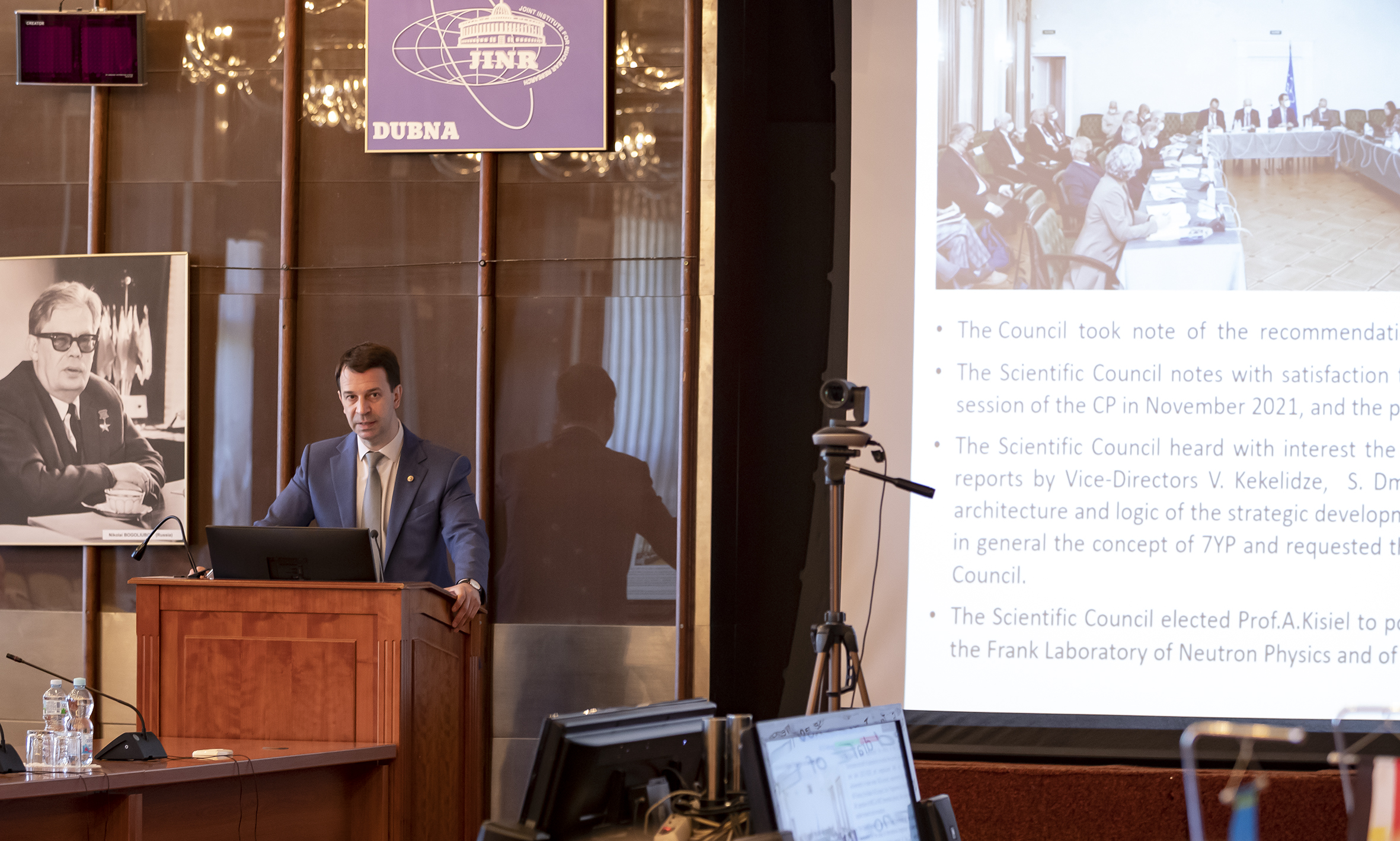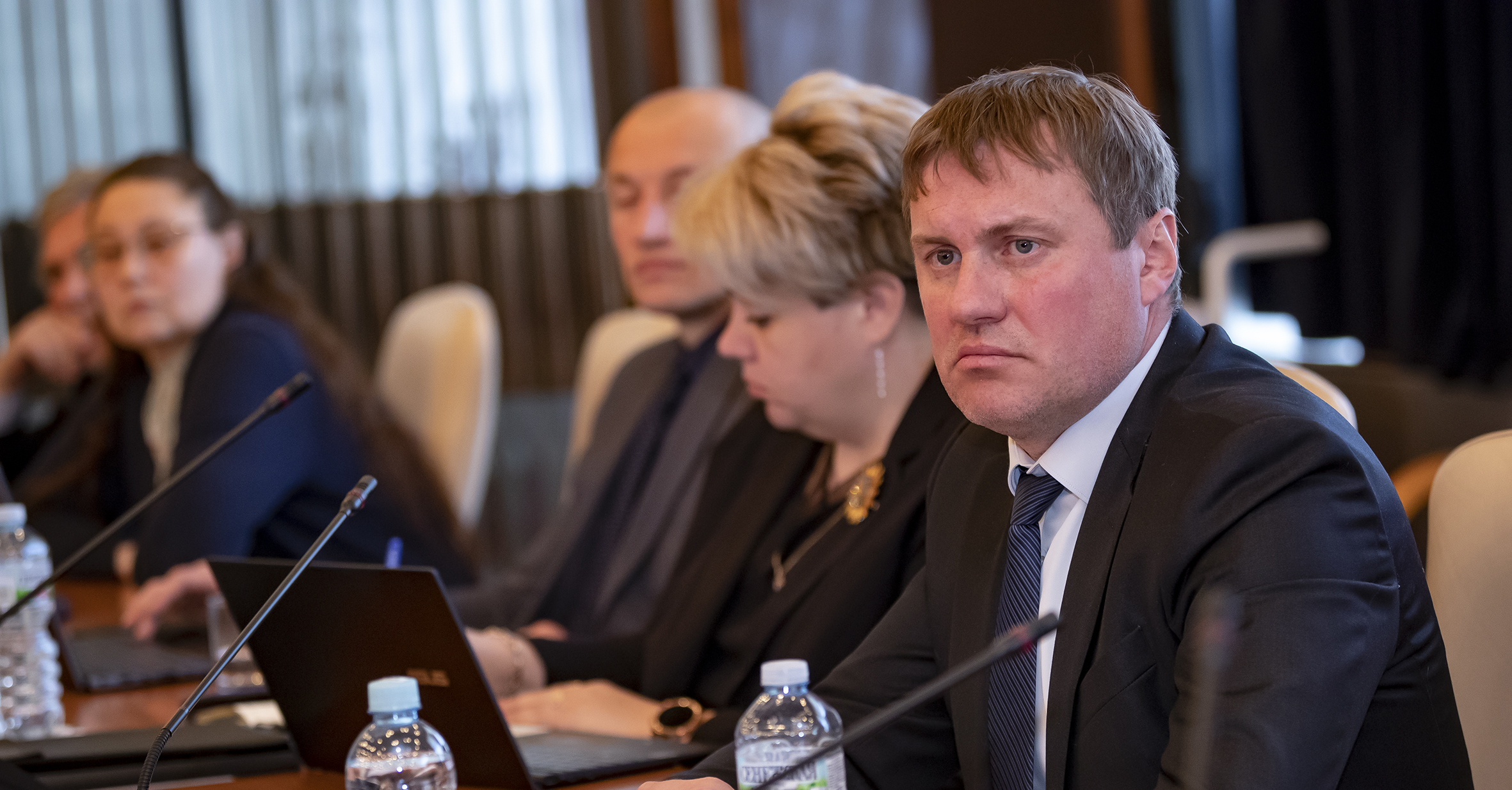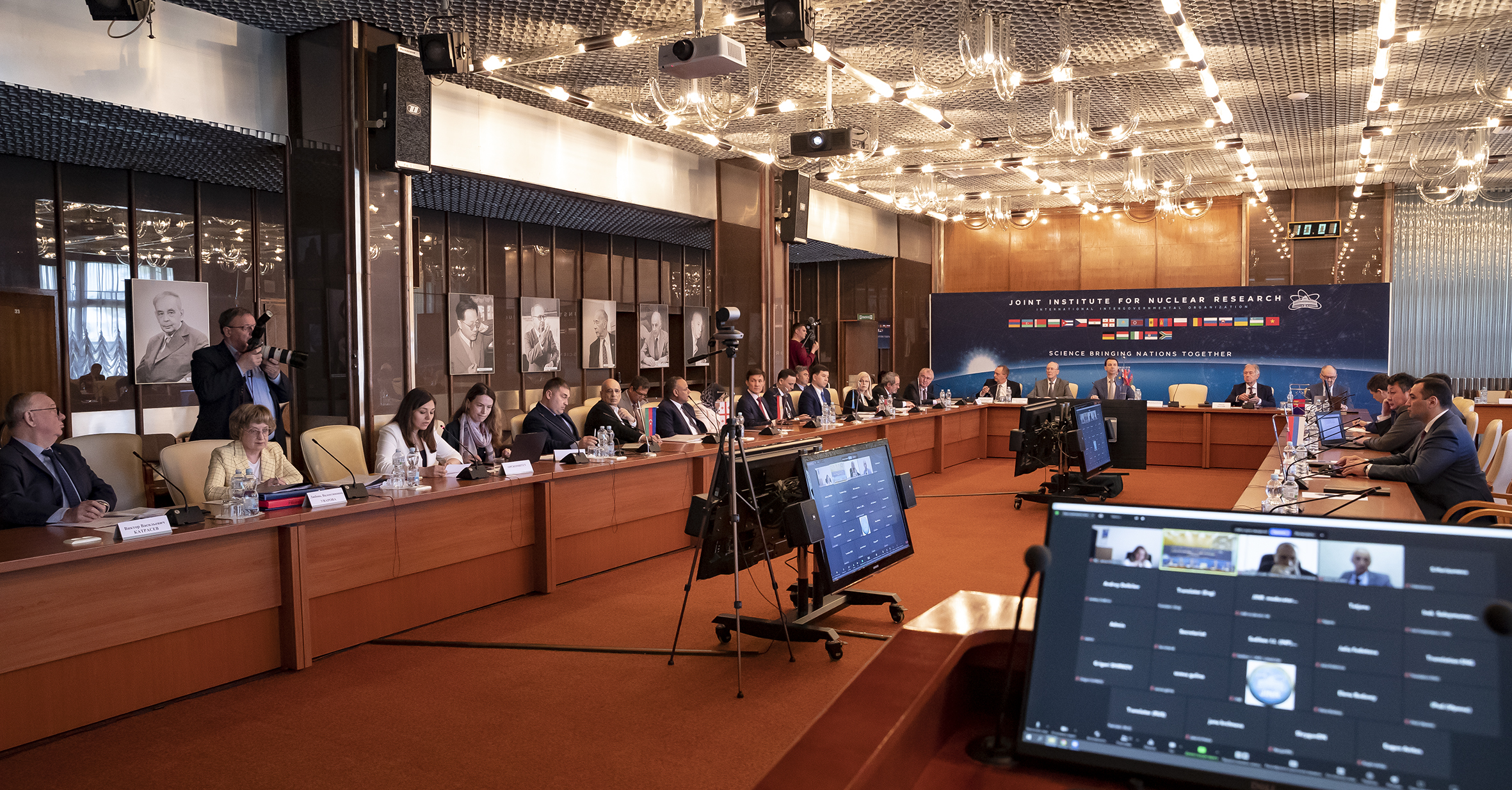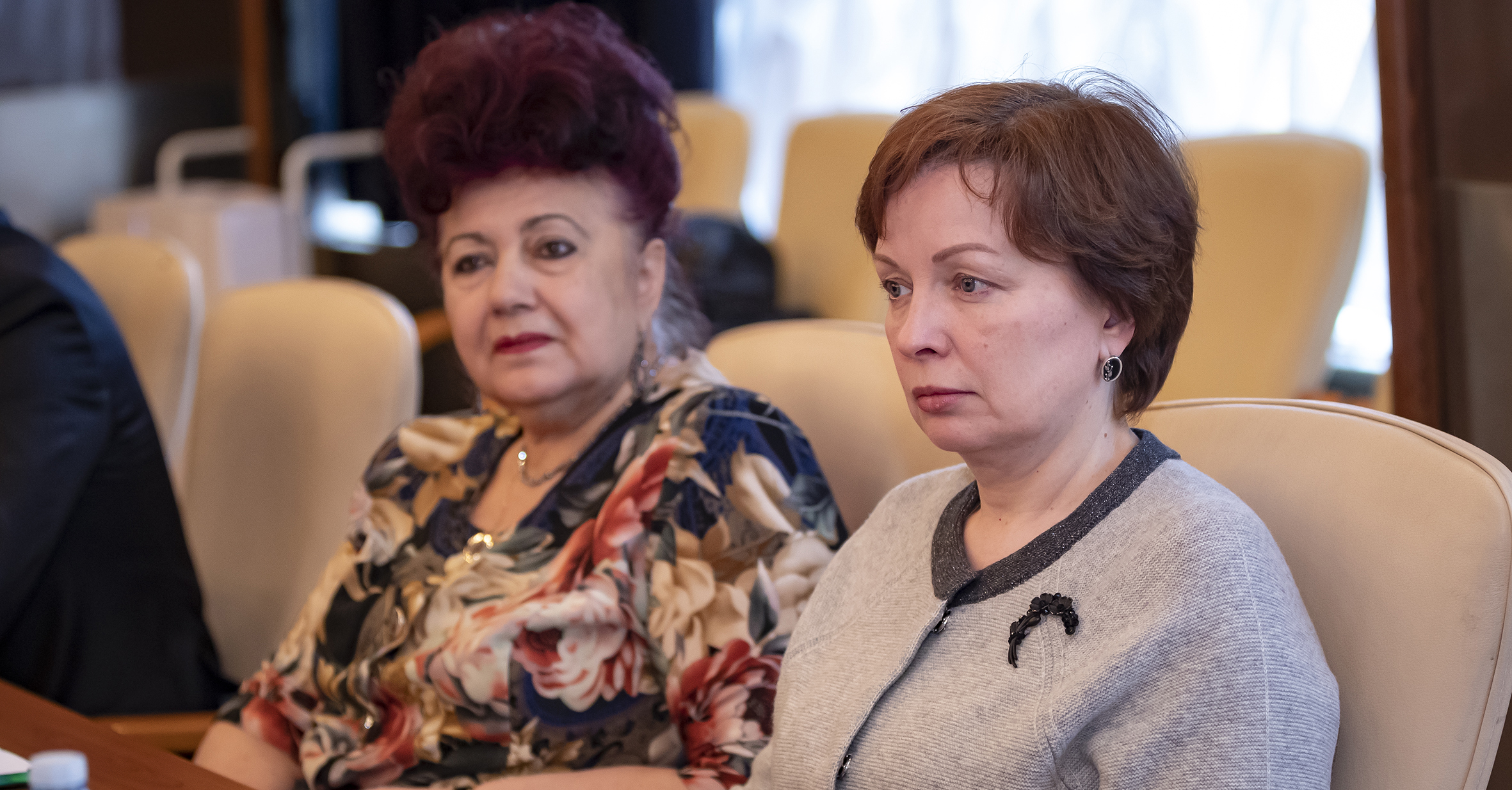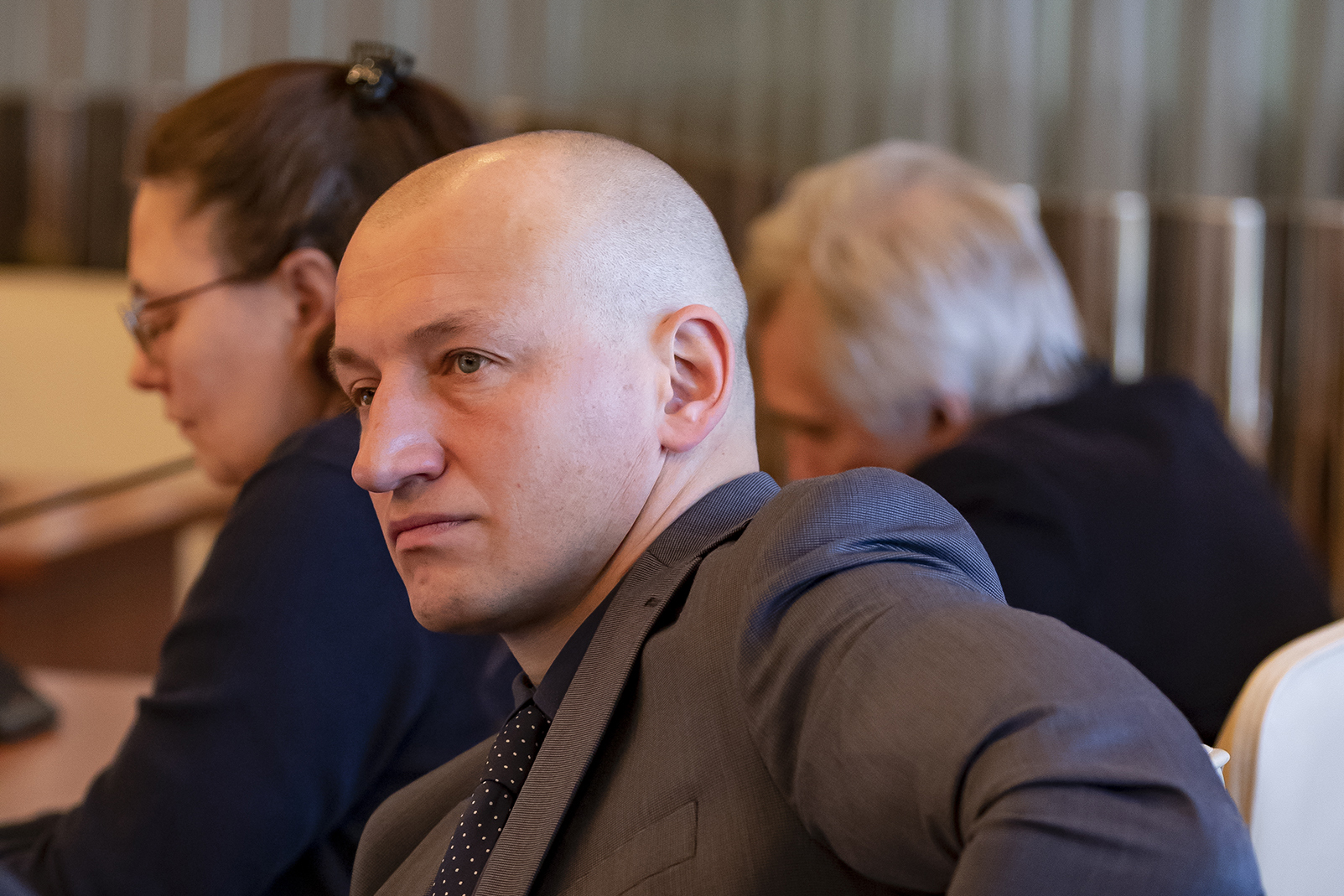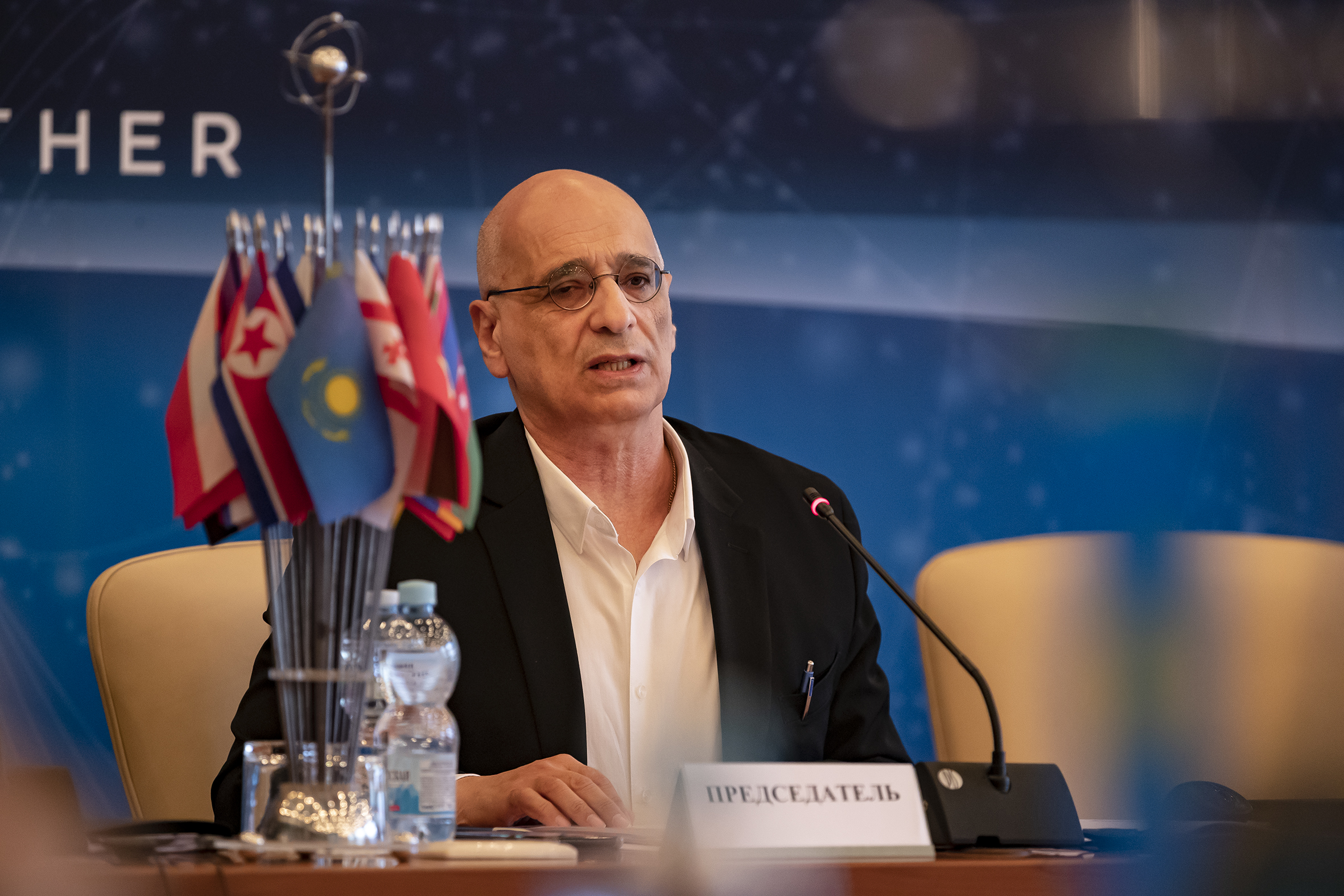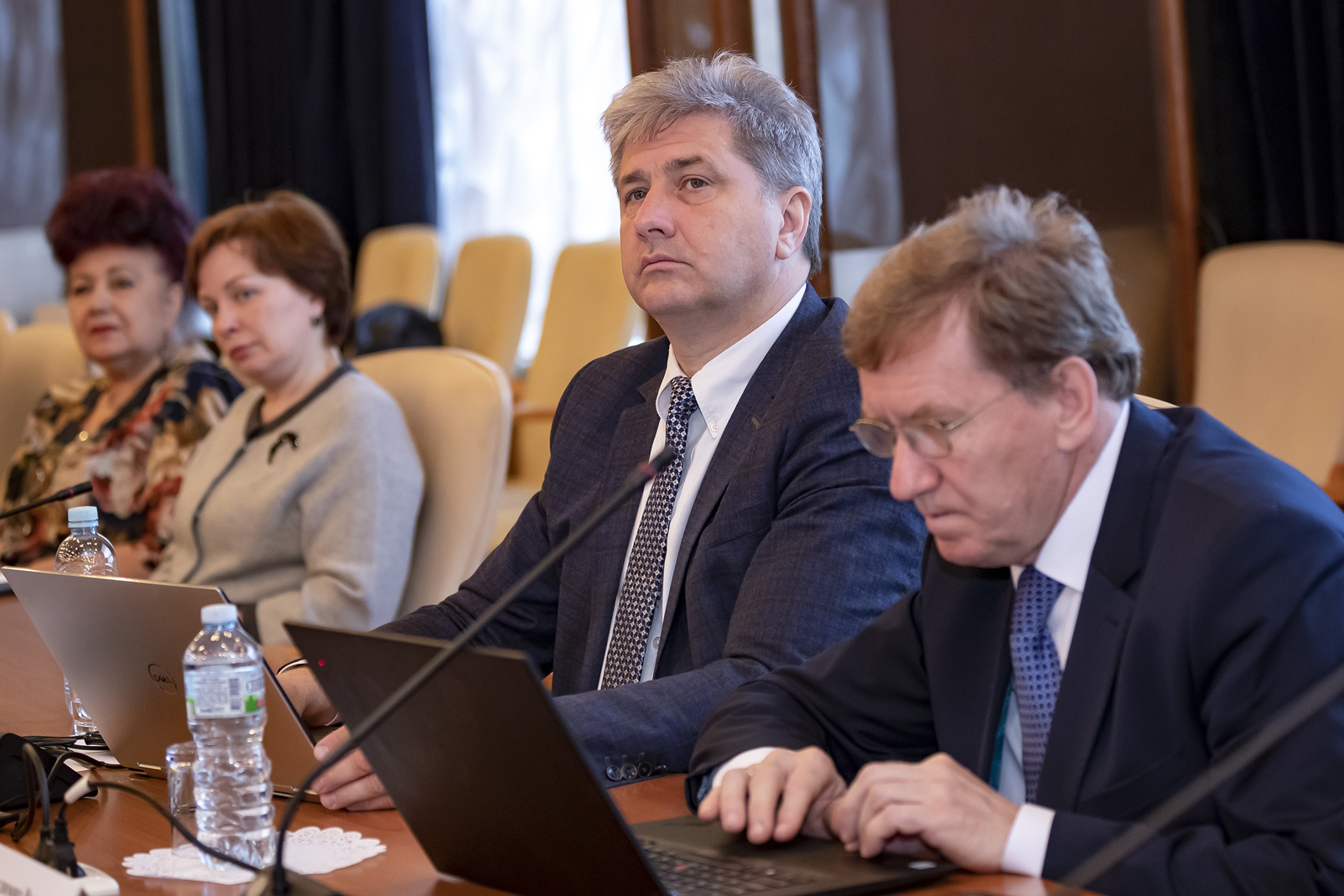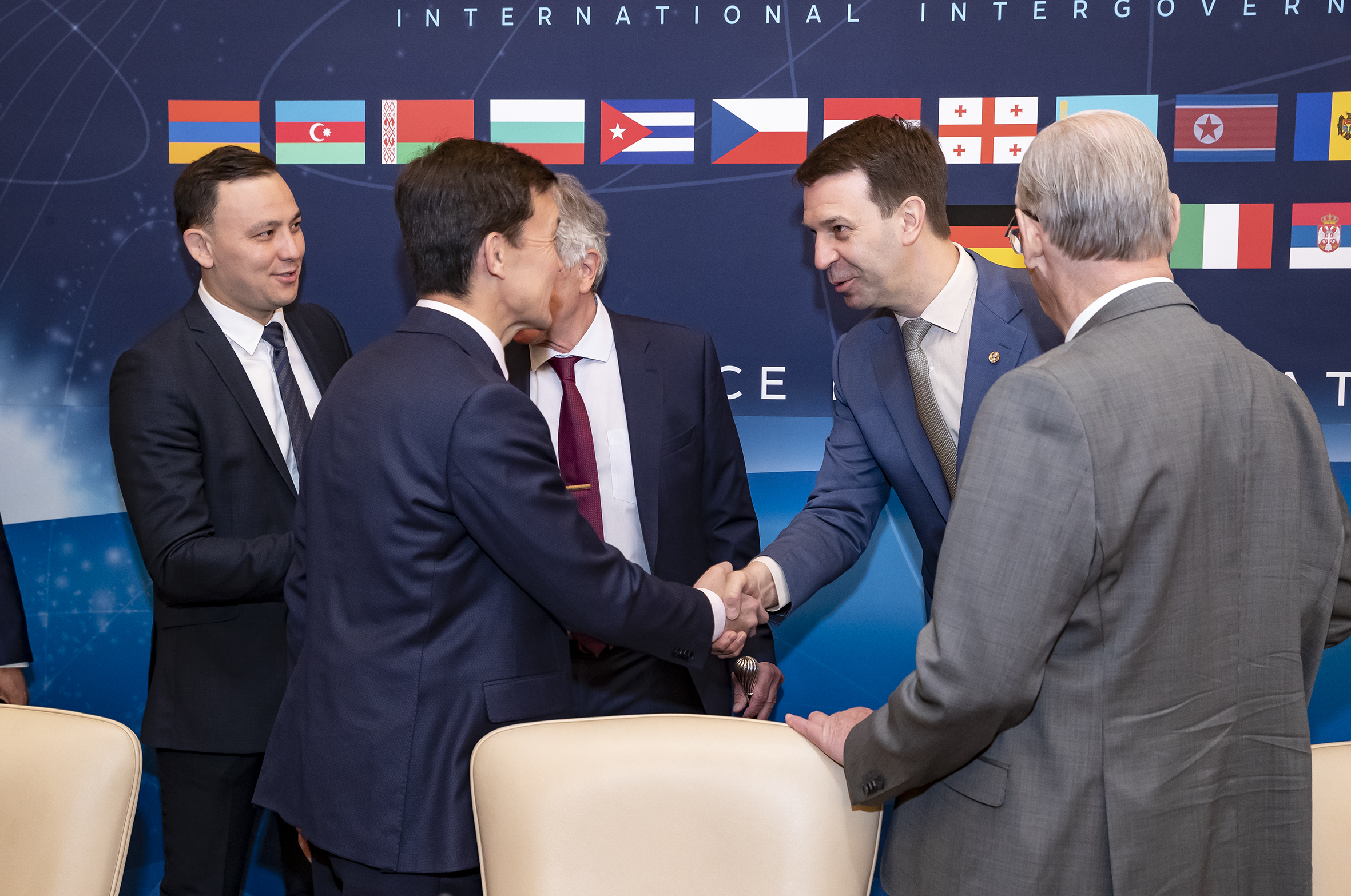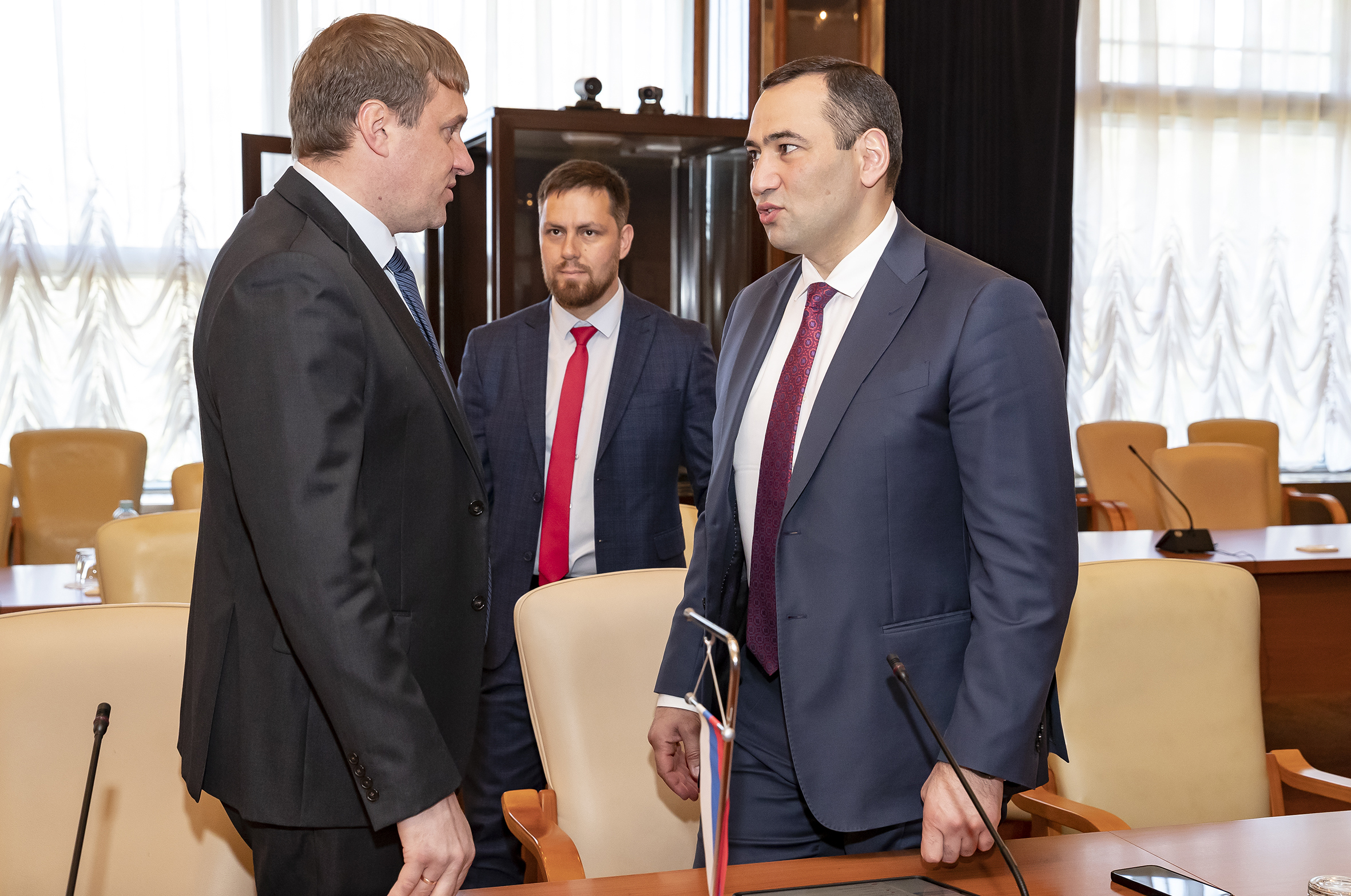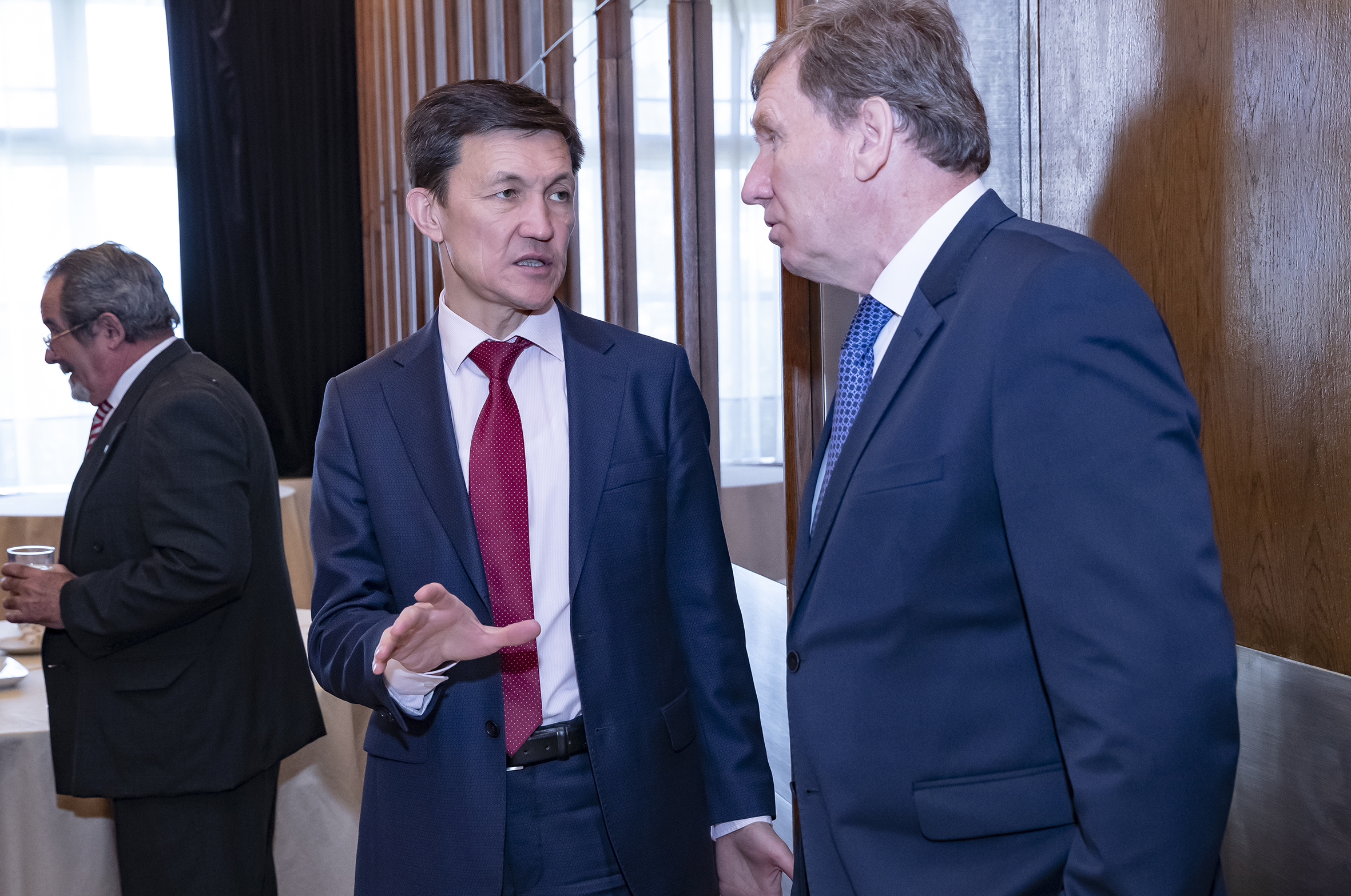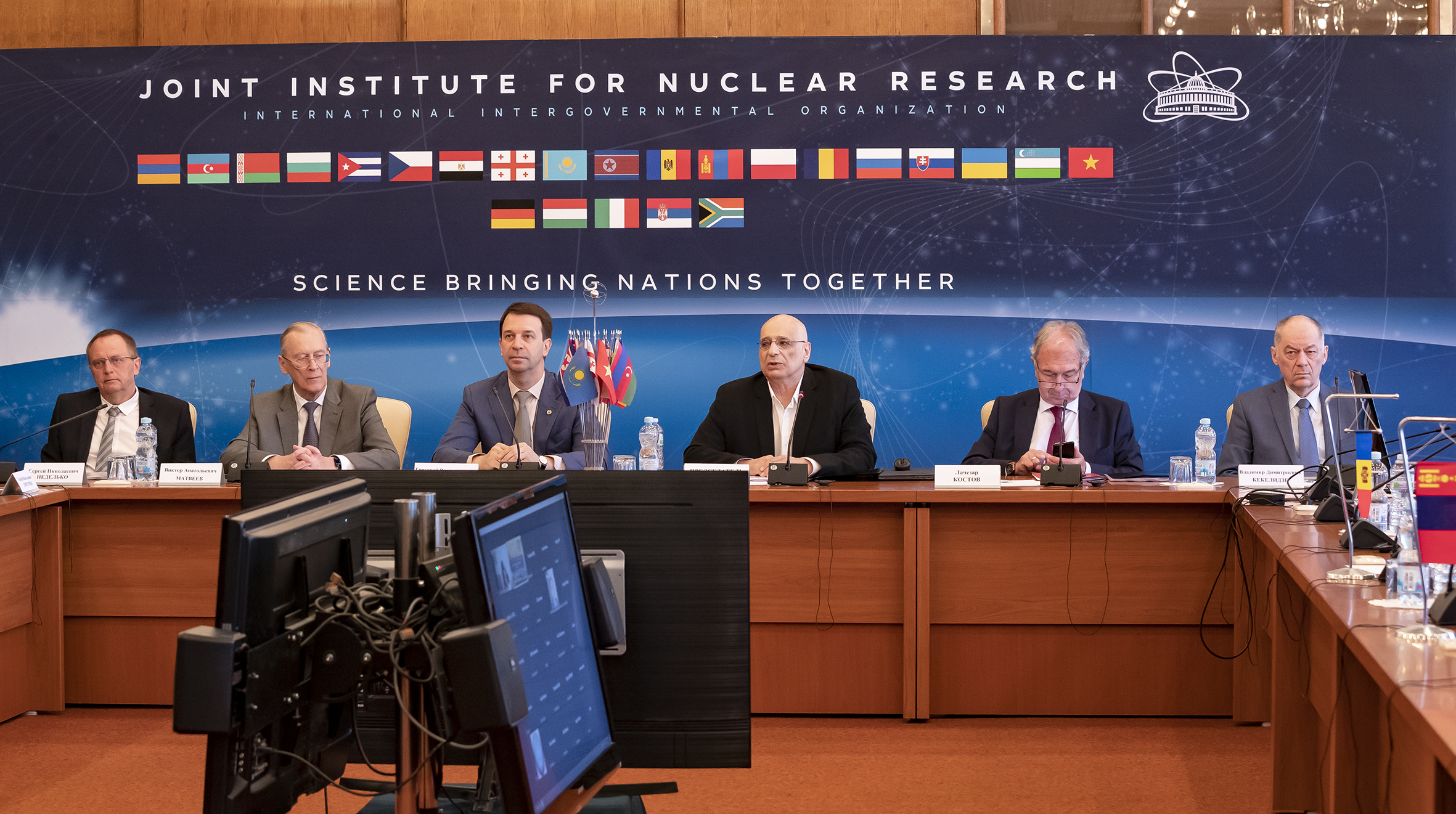Regular JINR Finance Committee meeting was held in Dubna
Organization, 23 May 2022
The event took place in a hybrid offline-online format. Representatives of Azerbaijan, Cuba, Georgia, Egypt, Kazakhstan, Moldova, Mongolia, and Russia gathered in the International Conference Hall of JINR at a regular meeting. Representatives of other JINR Member States joined the meeting in a remote format.
Chaired by Arsen Khvedelidze, the event was opened by JINR Director RAS Academician Grigory Trubnikov who introduced participants to the current events in the life of JINR in detail, as well as presented plans for the Institute’s development.
The JINR Director presented the milestones of the session of the Scientific Council held in February and meetings of the Programme Advisory Committees held in January and spoke about the progress in the major scientific projects of the Joint Institute. Thus, 95% of construction works at the NICA accelerator complex have been completed, two new clusters of optical modules have been installed at the deep-underwater neutrino telescope Baikal-GVD. During the operation of the Superheavy Element Factory, 235 new events of synthesis of superheavy nuclides and two new isotopes of moscovium and livermorium have been obtained. New basic facilities have been brought into operation: the SARRP X-ray irradiation facility in LRB and the XEUSS 3.0 X-Ray scattering station station in FLNP. The outstanding results of CERN in studying the Higgs boson, obtained with the active participation of JINR, were noted.
Grigory Trubnikov in his report highlighted that the main goal of the Institute for the upcoming seven-year period will be to preserve human capital, as well as strengthen the staff with highly qualified scientists and engineers, which is necessary for projects being implemented by the Institute. It requires improving the salary system and creating a comfortable social environment in the city of JINR location. In this regard, the importance of pragmatic growth of the JINR budget was noted. “The next seven-year period starting in 2024 will be the harvest time. The bulk of the facilities will operate, and the Institute is supposed to ensure their safe and uninterrupted operation, as well as the processing of acquired data,” Grigory Trubnikov said.
Moreover, Grigory Trubnikov reported in detail on the tasks of expanding the geography of JINR cooperation.
Head of the Budget and Economic Policy Department Nikolay Kalinin will give a talk on the execution of the JINR budget for 2021 and draft of the revised budget of JINR for 2022. In 2021, the revenue part of the Institute’s budget was fulfilled by 98%, the expenditure part — by 86%. According to experts, this is a good level of budget execution. In the revenue part of the budget, the main source was the contributions of Member States. Most JINR Member States fulfill their obligations on contributions to the Institute’s budget: in 2021, the fulfillment of income by contributions amounted to 97%. The budget execution for expenditures in 2021 turned out to be significantly higher than in previous years. The Institute’s budget has a positive balance as of the end of the year. Budget implementation by consolidated items (personnel, international cooperation, material costs, external R&D, construction, energy and water, repairs, operational expenses) in 2021 amounted to 89%. In addition, there is an increase in the salaries of employees: the average salary for the Institute is 95 thousand rubles per month, the average for researchers is 155 thousand rubles.
JINR Vice-Director Latchesar Kostov reported on the selection of an organization for auditing JINR’s financial activities for the year 2021. In May-June, the Finexpertiza LLC will carry out an audit.
Chairman of the Working Group under the CP Chair for JINR Financial Issues Aidos Issadykov presented the results of the meeting of the Group held on 19 May. Within the framework of the report, the issue of personal income tax offset in the framework of payment of contributions from Member States was considered in order to avoid overpayments.
Institute’s Chief Scientific Secretary Sergey Nedelko presented to the audience the proposals for improving the standard regulation of cooperation programmes and grants of Plenipotentiaries of the JINR Member States. The rules proposed for grants and programmes clarify the goals and define a standard approach to the selection and implementation of projects, harmonise the distribution of roles of participants in the organization of financing and execution of projects in accordance with their status. In fact, this approach will help to consolidate the best practices in accordance with the experience of the Institute accumulated over the years of using this form of targeted funding.
In addition, as part of the programme of the meeting of the Finance Committee, participants heard the scientific report by MLIT Director Vladimir Korenkov “Digital platforms for JINR research projects”.
